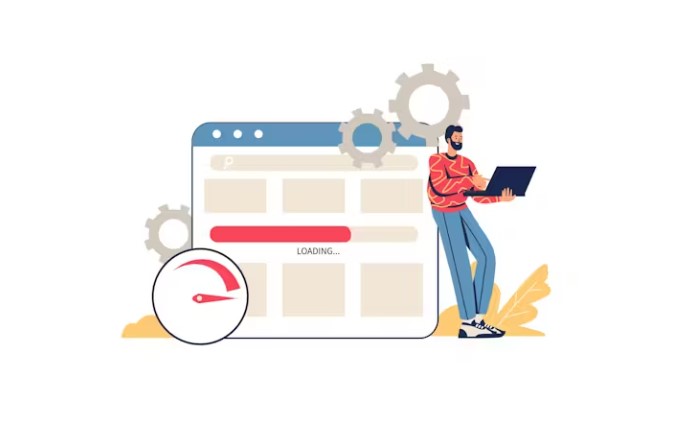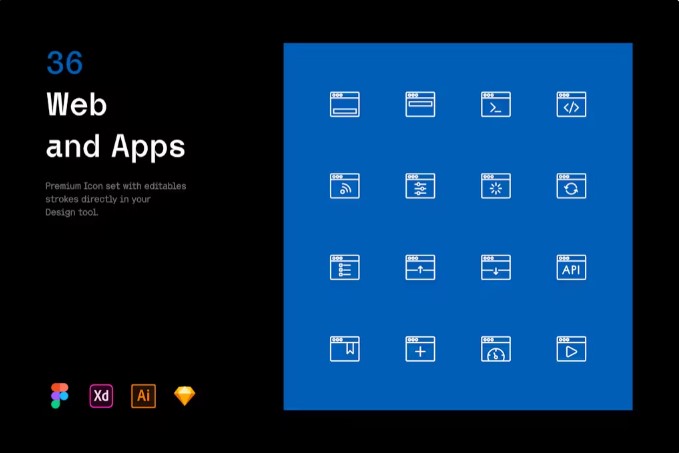Web App vs Website: Understanding the Difference
- What is a Website?
- What is a Web App?
- Difference Between Website and Web Application
- When to Choose a Website vs Web App
- App vs Website: Cost and Skills
- Frameworks in Web Application vs Web Site
- Web Application vs Web Page in Outsourcing
- Conclusion
- FAQ
Today, in the digital age, people often use the terms “website” and “web application” interchangeably. While both are accessed through a web browser and share certain similarities, there are distinct differences between them. Understanding these differences is crucial. They matter to people and companies who want to go online or make web apps.

What is a Website?
A website is a collection of linked web pages. They are hosted on a server and can be accessed via the Internet. It is intended primarily for information dissemination, communication and marketing. Websites are usually static in nature, meaning that the content is displayed to visitors in a fixed format. They use HTML, CSS, and JavaScript. They may also have images, videos, and interactive parts.
Key features of a website:
- Dissemination of information. Websites mainly provide information to visitors through text, images, and multimedia content.
- Static content: Content on websites remains the same unless manually updated.
- Limited interactivity. While websites can have interactive elements such as forms or chat widgets, the level of interactivity is often limited compared to web applications.
- Wide accessibility. Websites are accessible on a variety of devices and platforms, including desktops, laptops, tablets, and smartphones.
- Search engine optimization (SEO). Websites can be optimized for search engines to improve their visibility and organic traffic.
What is a Web App?
A web application is a dynamic software application that runs on web browsers. Unlike websites, web applications are interactive and provide users with functionality beyond information dissemination. They are made using web technologies. These include HTML, CSS, and JavaScript. They also use back-end programming languages. These include Python, Ruby, and PHP. Web applications often use web frameworks or libraries to facilitate development.
Key characteristics of web apps:
- Interactivity. Web applications offer a high level of interactivity and user engagement, allowing users to perform actions and manipulate data.
- Dynamic content. Web applications dynamically generate content based on user input, database queries, or external APIs.
- Advanced functionality. Web applications provide advanced functionality and complex workflows such as user registration, transactions, and data processing.
- Personalization. Web applications can personalize the user experience based on individual preferences or previous interactions.
- Offline capabilities. Some web applications can operate offline using technologies such as service workers and local storage.
Difference Between Website and Web Application
Now that we’ve covered the main characteristics of websites and web apps, let’s summarize the key differences between them:
- Purpose. Websites are primarily focused on providing information, while web applications are focused on providing interactive features and performing specific tasks.
- Content. Websites typically have static content, while web applications generate dynamic content based on user input and other factors.
- Interactivity. Web applications offer a higher level of interactivity compared to websites.
- Complexity. Web applications are generally more complex than websites in terms of functionality and technical requirements.
- Offline capabilities. Web applications can work offline, while websites rely on an active internet connection.
- Personalization. Web applications can personalize the user experience, while websites tend to provide the same experience for all visitors.
- Development approach. Websites are often easier and faster to develop than web applications.

When to Choose a Website vs Web App
When choosing between a website and a web application for your project, consider the following factors:
- The nature of the project. Your main goal is to give information and talk to users through static content. A website may be enough. However, a web application is more appropriate if you need advanced functionality, interactivity, and dynamic content generation.
- Target audience. Understand the needs and preferences of your target audience. A web app may be a better choice if they need a personalized experience, real-time updates, or interactive features.
- Budget and timeline. Websites are generally faster and cheaper to develop than web apps. Consider your budget and time constraints when making your decision.
- Scalability and future growth. If you anticipate the need for scalability and future feature expansion, a web application may be a better long-term solution.
App vs Website: Cost and Skills
When considering the development of a website versus a web application, cost and required skills are crucial factors to take into account.
Website:
- Cost-effectiveness: Websites are generally cheaper to develop and maintain than web applications. This is because websites generally require simpler functionality and back-end infrastructure.
- Skill requirements: Website development requires proficiency in front-end technologies such as HTML, CSS, and JavaScript. Also, knowing frameworks like Bootstrap or Foundation can make development simpler. They can also make it more responsive.
Web Application:
- Higher cost: Web applications tend to be more expensive due to their complexity and advanced features. Developing robust web applications often requires backend development, database integration, and ongoing maintenance.
- Advanced skills: Building web applications requires knowledge of both front-end and back-end technologies. Front-end skills include knowledge of JavaScript frameworks like ReactJS, Angular, or Vue.js. Back-end skills involve knowledge of server-side languages. These include Node.js, Python (with Django or Flask frameworks), Ruby on Rails, and PHP (with Laravel or Symfony frameworks).
Frameworks in Web Application vs Web Site
Frameworks play an important role in web development by offering pre-built components and libraries to simplify the development process and increase efficienc:
- For websites. Front-end frameworks like Bootstrap, Foundation, or Tailwind CSS provide pre-styled components and responsive layouts. They make it easy to create attractive, mobile-friendly websites.
- For web applications. MERN (MongoDB, Express.js, React.js, Node.js) and MEAN (MongoDB, Express.js, Angular, Node.js) are full-stack frameworks. Django (with Django REST Framework) is another. They offer all you need to make strong web apps. These frameworks provide tools for both front-end and back-end development. They ensure smooth integration and efficient project management.
Web Application vs Web Page in Outsourcing
Web development outsourcing can be a strategic solution for companies looking to save costs, gain access to specialized skills, and speed up project delivery times. By engaging external developers or development firms, companies can tap into expertise in the latest technologies and frameworks without the need for in-house resources. This approach is particularly beneficial for complex web applications and websites that require advanced skills and can help ensure high-quality results while managing budgets effectively.
Conclusion
Knowing the differences between websites and web applications is key. It helps you make informed decisions when developing an online platform or choosing the right solution for specific needs. The choice between a website and a web app depends on your goals. It depends on your target audience and desired features.
FAQ
What are the main difference between a website and a web app?
Websites provide static information, while web apps offer interactivity and dynamic content.
When should you choose a website over a web application, and vice versa?
Websites for static content, web apps for interactivity.
What factors should we consider when deciding?
Project nature, target audience, budget, scalability.

Free website strategy session with a senior web expert
For over a decade, we’ve helped startups, SaaS companies, and service brands build high-performing websites that drive real results. Whether you’re planning a redesign, launching a new product, or need to scale your platform—our technical and UX expertise can help you move faster and smarter.
Ready to talk? Connect with a lead developer at Hutko.dev for a FREE 30-minute strategy call. Let’s map out your next step, together.
Book a Free Call




